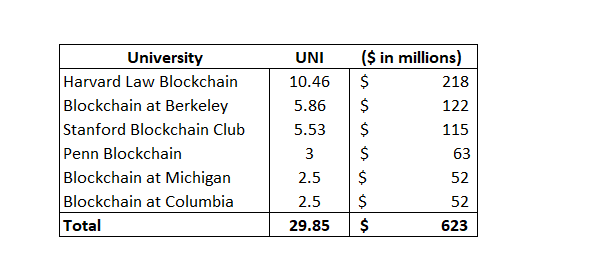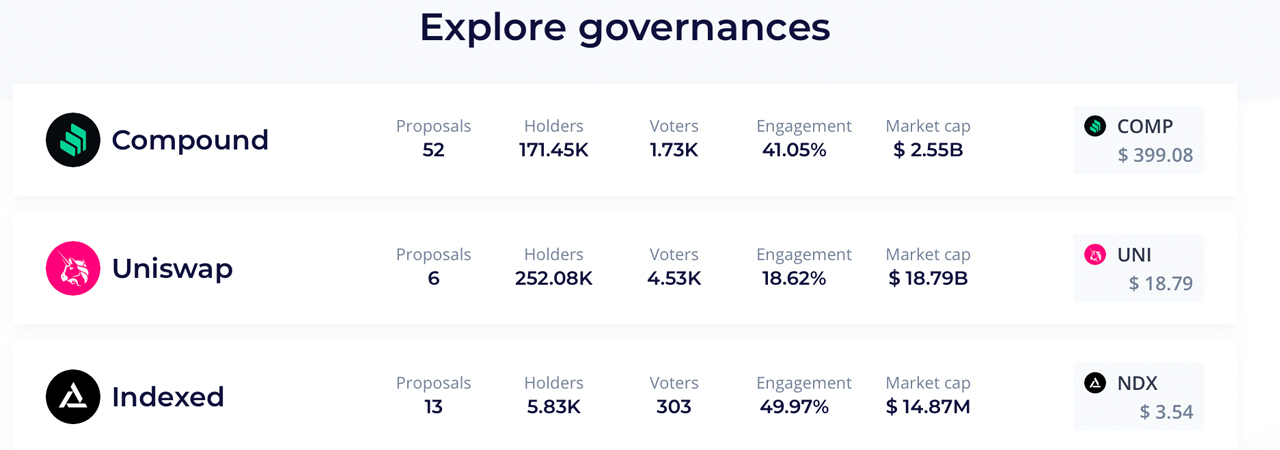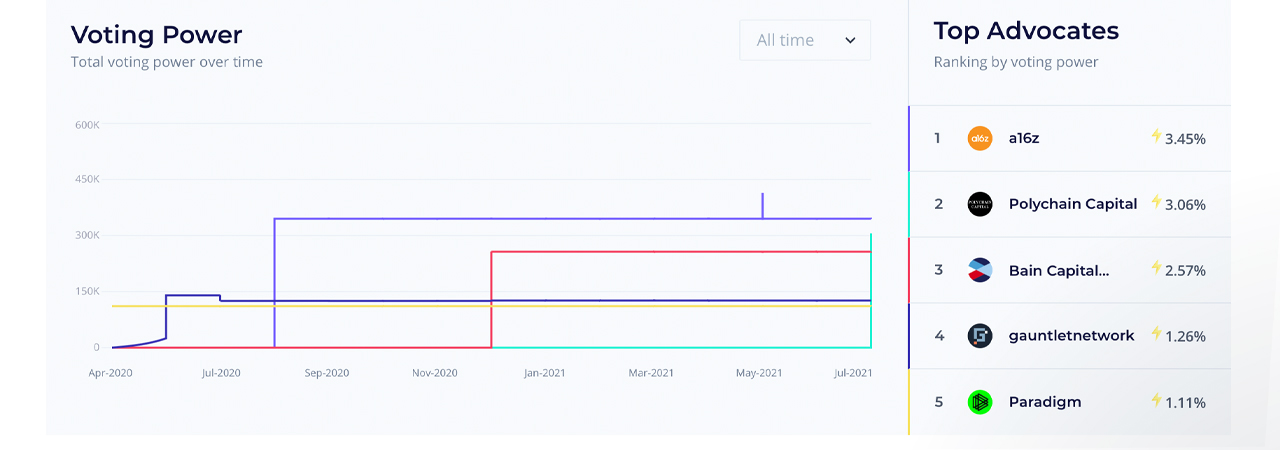Blockchain Groups From Major Universities Are Powerful Voters in Defi Governance Protocols

Data shows a number of groups from major universities are participating in decentralized finance (defi) governance. For instance, out of 15 of the largest voters in Uniswap’s last governance proposal, six of the major voters were tied to universities like Harvard, Berkeley, Stanford, Penn, Michigan, MIT, and Columbia University.
Blockchain University Groups Identified as Major Players in Defi Governance Decisions
Just recently, messari.io researcher Jack Purdy tweeted about an interesting find he discovered while researching defi governance protocols. Purdy’s recent tweet showcased six prestigious universities that were involved in a recent Uniswap governance proposal voting process.
“Universities are becoming some of the most active participants in crypto governance,” Purdy said. “Out of the 15 largest voters on Uniswap’s last proposal, 6 of them were Universities. That’s over $600 million of a useless governance token,” he added.

Of course, the voters that are participating are not necessarily official representatives of the universities, but groups of students participating in blockchain projects. Verifying whether or not Purdy’s tweet is factual can be validated via the website withtally.com (Tally), a web portal that explores cryptocurrency governance systems.
Tally explores governance tethered to projects like Compound, Uniswap, Indexed, Fei, and Gitcoin. For instance, Compound has 52 governance proposals, 1.72K eligible voters, and 41% engagement. Uniswap has only six governance proposals, 4.53K voters, and 18.62% engagement.

Uniswap proposals include a defi education fund, reducing the UNI proposal submission threshold to 2.5 million, and Uniswap Grants Program v0.1. The defi education fund was executed with 79 million votes for the fund and 15 million votes against it.

The proposal meant to reduce the UNI proposal submission threshold to 2.5 million was also executed with 14.4 million votes for the threshold and two million votes against the threshold idea. Harvard Law Blockchain is a top voter on Uniswap according to Tally and captures the fifth position among the top Uniswap governance voters.
The list of major Uniswap governance voters includes Blockchain at Berkeley (11), Stanford Blockchain Club (13), Blockchain at UCLA (16), and PennBlockchain (20). Meanwhile, corporate entities and venture capitalist funds represent a larger portion of Compound’s governance proposals.

Compound voters are competing with firms like a16z, Polychain Capital, and Bain Capital Ventures. Despite the corporate entities, university blockchain groups also participate in Compound’s governance system. Compound voters from universities include Blockchain at Michigan, Blockchain at UCLA, Blockchain at Berkeley, Stanford Blockchain Club, and MIT’s Bitcoin Club.
Ishaan Hiranandani, a member of Blockchain at Michigan, explained that the participants are mostly students. “[Blockchain at Michigan] is completely student-run, though we have advisors in the space for help,” Hiranandani said.
In Today’s World of Political Bias Toward the Destructive Left/Right Paradigm — Do People Really Want Academics Governing Defi?
Not everyone was pleased hearing about the university groups participating in significant defi governance proposals and some called the university participation “cringe.”
“The last thing you want is woke, leftists academics ‘governing’ your defi protocol,” a Twitter account dubbed Defimoon said. “You also don’t want VCs with strong ties to leftist academic institutions with sizable governance stakes in your favorite defi protocol,” the individual added.
However, not everyone agreed with Defimoon’s stance, and some people vouched for widespread participation in defi governance. “I don’t agree,” a Twitter account called Defibrillator replied to Defimoon’s tweet. “Often these are student-run groups and in any case, you don’t get to pick and choose who is involved in crypto. Broad participation is a good thing even if it offends your political bias.”
What do you think about all the university groups participating in defi governance proposal votes? Let us know what you think about this subject in the comments section below.






